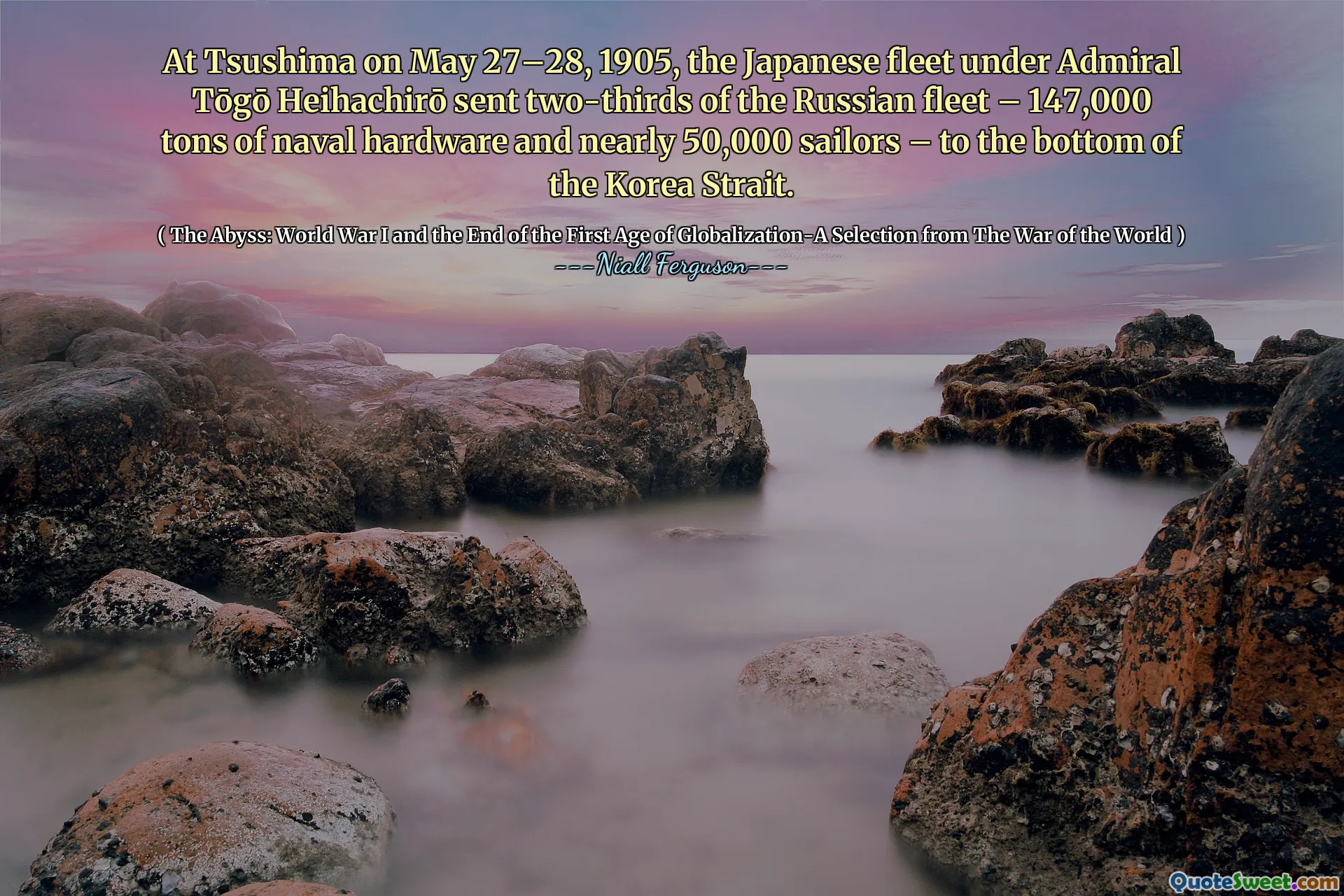
At Tsushima on May 27–28, 1905, the Japanese fleet under Admiral Tōgō Heihachirō sent two-thirds of the Russian fleet – 147,000 tons of naval hardware and nearly 50,000 sailors – to the bottom of the Korea Strait.
In May 1905, the Battle of Tsushima marked a significant maritime confrontation during the Russo-Japanese War. Under the command of Admiral Tōgō Heihachirō, the Japanese fleet achieved a decisive victory, sinking two-thirds of the Russian naval fleet, which comprised around 147,000 tons of ships and nearly 50,000 sailors. This battle highlighted Japan's emerging naval power and its ability to challenge Western imperial forces.
The outcome at Tsushima not only shifted the balance of power in East Asia but also underscored the importance of naval prowess in global conflicts. This event reflected broader themes in Niall Ferguson's examination of World War I and its implications on globalization, marking a transition in military technology and strategic dominance among nations during the early 20th century.











